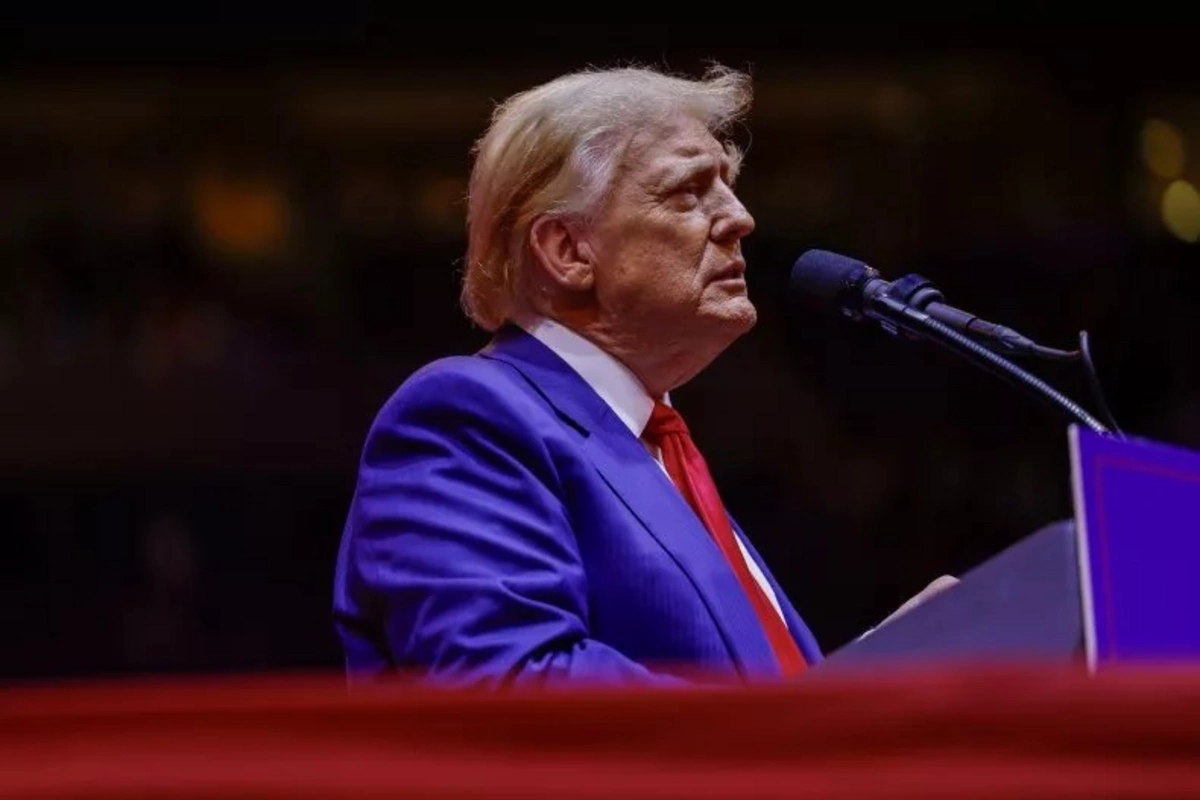
Observers expect the Trump administration to reestablish a pragmatic approach in the South Caucasus, renewing the previous U.S. course that refrained from excessive interference in Armenian-Azerbaijani relations.
NEW YORK, NEW YORK - OCTOBER 27: Republican presidential nominee, former U.S. President Donald Trump speaks at a campaign rally at Madison Square Garden on October 27, 2024 in New York City. Moneymaker/Getty Images.
By Emil Haciyev
Former U.S. President Donald Trump has returned to the White House. Although the final election results have yet to be announced, it is evident that the Democrats have been defeated. In his inaugural speech, Trump assured Americans that he would focus on domestic issues: tackling immigration, reducing national debt, and strengthening the economy, envisioning the dawn of a "Golden Age of America."
While the feasibility of these promises remains to be seen, experts believe the new administration will also need to address mistakes made under Biden's presidency, including those on the international stage. The Biden administration’s policies have had substantial geopolitical implications, especially in regions like the South Caucasus, which Trump may now be compelled to address.
Expectations are high for Trump to take decisive steps to halt global conflicts, including the ongoing Russian-Ukrainian and Middle Eastern conflicts. Throughout his campaign, he repeatedly emphasized his commitment to peace, yet whether he can achieve it remains uncertain.
In the South Caucasus, a region with its own challenges, many hope that the U.S. election outcome will influence regional stability. Specifically, Biden’s unprecedented support for Armenia during the Nagorno-Karabakh conflict marked a significant shift in U.S. policy. Previous U.S. administrations maintained a balanced stance, refraining from overt favoritism, but Biden’s approach leaned visibly toward Armenia, which some argue reflected Armenian lobbying efforts more than strategic foresight.
For nearly three decades, the U.S. acted as a mediator between Azerbaijan and Armenia, but no prior administration had tilted so strongly towards Armenia. Biden’s team sometimes appeared to operate under Armenian influence, leading to concerns over Washington’s impartiality. Many now hope Trump will adopt a more balanced approach in the South Caucasus, avoiding a one-sided agenda that strained relations with Baku. Azerbaijan had initially restrained from reacting to U.S. criticisms, but this uncharacteristic tension eventually surfaced, surprising American policymakers.
Observers expect the Trump administration to reestablish a pragmatic approach in the South Caucasus, renewing the previous U.S. course that refrained from excessive interference in Armenian-Azerbaijani relations. Such a recalibration could help the U.S. restore its waning influence in a region impacted by recent pressures on Georgia, unjust accusations against Azerbaijan, and impulsive promises made to Armenia.
There is also hope that under Trump, issues Western narratives have amplified—such as "ethnic cleansing of Armenians," "deportation from Karabakh," and threats to Armenia’s territorial integrity—will be reconsidered. The voluntary departure of Armenians from Karabakh was witnessed by the global community, and it would be unseemly for Washington to follow French-led narratives promoting a "new Armenian genocide" in Western circles.
Among expectations from the new administration are improved U.S. relations with both Azerbaijan and Türkiye. Biden became the first U.S. president to publicly use the term "genocide" regarding the Armenian tragedy on April 24, a move spurred by Armenian lobbying. According to insider accounts, the term was suggested without Biden fully grasping its implications. Nevertheless, in 2021, the U.S. formally accused Türkiye of an "Armenian genocide," a declaration that past administrations had refrained from making. Biden’s pro-Armenian policies also strained U.S.-Azerbaijani relations, with tensions periodically escalating into open disputes.
One of the most contentious episodes arose following Assistant Secretary of State James O’Brien’s announcement of a visa ban on Azerbaijani officials, allegedly as punishment for "ethnic cleansing of Armenians." This announcement dealt a significant blow to bilateral relations by late 2023. While efforts were later made to normalize relations, the scars of these conflicts remain.
Whether Trump can fully heal these wounds is uncertain. However, there is some reason for optimism. During his first presidency, U.S.-Azerbaijan relations were relatively stable, and Washington maintained a neutral stance during the second Karabakh war, avoiding overt involvement.
Thus, there is a foundation for hope that positive changes are possible. Only time will reveal whether these expectations will materialize.
Share on social media
